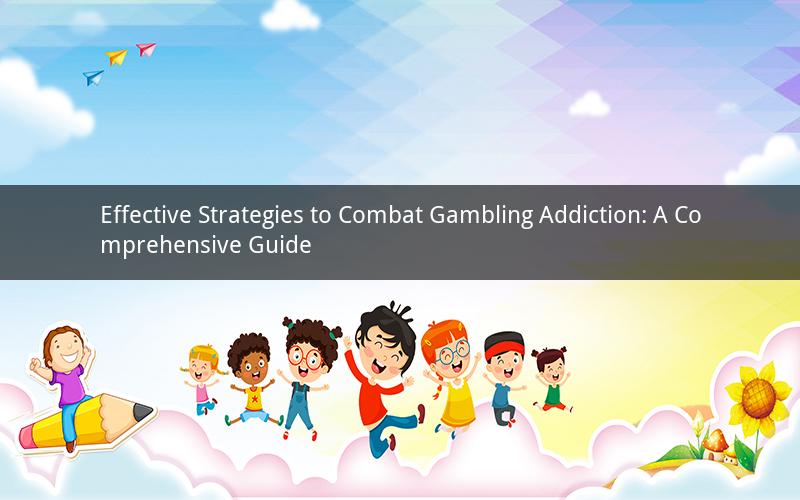
Gambling addiction is a serious issue that affects millions of individuals worldwide. It can lead to financial, emotional, and social problems, and overcoming it requires a proactive approach. This article delves into various effective strategies to treat gambling addiction, offering hope and guidance to those struggling with this disorder.
1. Acknowledge the Problem
The first step towards treating gambling addiction is to acknowledge that you have a problem. This may be challenging, but it is crucial for starting the recovery journey. Admitting that gambling has become an uncontrollable habit is the first step towards breaking free from its grip.
2. Seek Professional Help
Professional help is essential in treating gambling addiction. Therapists and counselors specialize in addiction and can provide personalized treatment plans. They can help you understand the underlying causes of your addiction and develop coping strategies to overcome it.
3. Develop a Support System
Building a support system is crucial in your journey to recovery. This can include friends, family, support groups, or even online communities. Sharing your experiences and receiving encouragement from others who have faced similar challenges can be incredibly beneficial.
4. Create a Budget and Stick to It
One of the primary reasons gambling addiction can be so damaging is its financial impact. To combat this, create a budget that allocates funds for essential expenses and strictly adhere to it. This will help you avoid the temptation to use your savings or borrow money to finance your gambling habits.
5. Identify Triggers and Avoid Them
Identifying triggers that may lead to gambling relapse is crucial. These triggers can include certain locations, social situations, or emotional states. Once identified, make a conscious effort to avoid these triggers or develop strategies to cope with them effectively.
6. Practice Self-Reflection
Self-reflection is an essential part of treating gambling addiction. Spend time thinking about the consequences of your gambling habits, both in the short and long term. This can help you gain a deeper understanding of the damage caused and motivate you to continue your recovery journey.
7. Learn Coping Skills
Developing healthy coping skills is vital in overcoming gambling addiction. Engage in activities that provide relaxation, such as exercise, meditation, or hobbies. These activities can help you manage stress and anxiety, reducing the urge to gamble.
8. Set Realistic Goals
Setting realistic goals is an effective way to stay motivated during your recovery journey. Break down your goals into manageable steps and celebrate your achievements along the way. This will help you stay focused and committed to your recovery.
9. Practice Mindfulness
Mindfulness is a valuable tool in treating gambling addiction. By practicing mindfulness, you can become more aware of your thoughts and emotions, allowing you to make more informed decisions. Mindfulness exercises, such as deep breathing or guided meditation, can help you stay grounded and focused on your recovery.
10. Continue to Seek Support
Recovery from gambling addiction is a lifelong process. Continue to seek support from professionals, support groups, and loved ones. This will help you stay accountable and provide you with the necessary resources to maintain your sobriety.
FAQs:
1. What are the signs of gambling addiction?
Gambling addiction can manifest through various signs, including secretive behavior, neglecting responsibilities, financial difficulties, and emotional distress.
2. Can gambling addiction be cured?
While there is no guaranteed cure for gambling addiction, effective treatment and ongoing support can significantly improve your chances of recovery.
3. How long does it take to recover from gambling addiction?
The duration of recovery varies from person to person. Some individuals may experience rapid progress, while others may require long-term treatment and support.
4. Can medication help treat gambling addiction?
Medication can be used as part of a comprehensive treatment plan, but it is not a standalone solution. Therapy and support are crucial in overcoming gambling addiction.
5. How can I support a loved one with gambling addiction?
Supporting a loved one with gambling addiction involves being patient, understanding, and encouraging them to seek professional help. Educate yourself about the disorder and be available to listen and offer assistance.